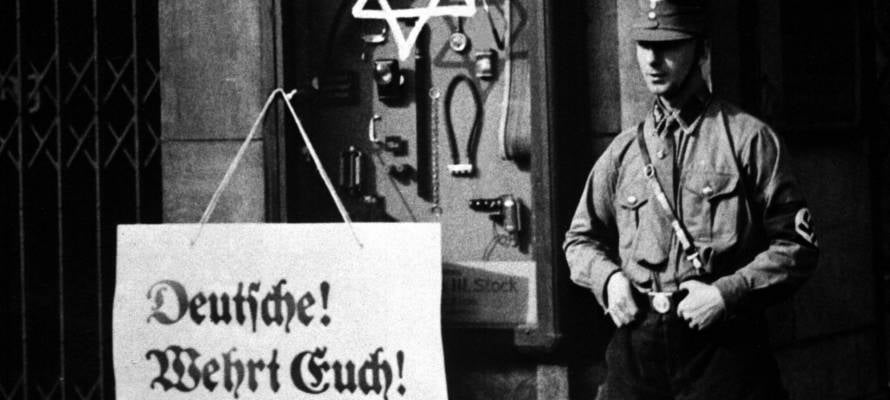Report finds 62 percent of immigrant respondents and over a third of respondents from Austrian background believe Israel’s treatment of Palestinians no different than Nazi persecution of Jews.
By Ben Cohen, The Algemeiner
A new report on antisemitic attitudes in Austria commissioned by that country’s parliament has revealed what the head of the Jewish community called “frightening” levels of anti-Jewish hostility within the general population, particularly among immigrant communities from a Middle Eastern background.
Announcing the report’s publication on Tuesday morning, Wolfgang Sobotka — the president of the lower house of the Austrian parliament from the conservative ÖVP Party — remarked that its findings proved that “antisemitism is not a phenomenon of the political fringe, it comes from the middle of society.”
The report was based on a survey of 2,000 Austrian citizens over the age of 16 at the end of 2022. A further survey of 1,000 individuals from Turkish and Arabic-speaking backgrounds was also conducted, revealing that antisemitism in this sector of the population is even more pronounced.
The report found that 15 percent of respondents manifested “severe” antisemitic attitudes, endorsing classic antisemitic stereotypes, denying the truth of the Holocaust or blaming Jews for their own persecution. A further 32 percent expressed “latent” attitudes, for example the belief that Israel’s elimination would result in peace in the Middle East.
Asked whether they believed that accounts of the Holocaust had been “exaggerated,” 11 percent of respondents answered affirmatively — a figure that rocketed to 40 percent when the same question was posed to those from a Middle Eastern background.
The report also revealed that more than a third of respondents — 36 percent — believed that Jews exploited the memory of the Holocaust for their own advantage, while 19 percent agreed with the statement, “It is not just coincidence that the Jews have been persecuted so often in their history; they are at least partly to blame for it.” Among the immigrant communities, the latter view was endorsed by 40 percent of those surveyed.
Similarly, a third of respondents confessed that they were “tired” of discussing the Holocaust, with more than 50 per cent of those from an immigrant background expressing agreement. When asked whether Israel’s treatment of the Palestinians was any different from the Nazi persecution of the Jews, 62 percent of immigrant respondents replied that it wasn’t. The same question was answered similarly by more than a third of respondents from an Austrian background.
Austria was incorporated into the Third Reich in 1938, well before the Nazi extermination program was underway in earnest. More than 65,000 Austrian Jews were murdered during the Holocaust, with a further 125,000 forced to seek refuge abroad.
More enduring antisemitic stereotypes were also represented, with 36 percent of respondents agreeing that Jews have “too much power in international business.”
The head of the Austrian Jewish community commented that the results of the survey were “frightening, but not surprising.”
The fact that more than a third of Austrians believed that Jews were trying to gain material advantage from the Holocaust was “in itself a mockery,” Oskar Deutsch — president of the Jewish Community in Vienna (IKG) — told Austria’s APA news agency on Wednesday.
The report “shows above all that better knowledge transfer is needed – knowledge about the Shoah and knowledge about Judaism itself,” Deutsch added.
In his speech to the Austrian parliament accompanying the report, Sobotka emphasized that antisemitism was a problem on both the political right and left, as well as among swathes of the Muslim community.
“It becomes visible on the edges: on the right-wing edges we have seen it for decades,” he said. “We didn’t pay attention to the left fringes for a long time, now we clearly see it as anti-Israelism and anti-Zionism; and in a third form, we see it in those people who have come to us for reasons of migration, because they come from countries where antisemitism or anti-Jewish attitudes count as a kind of reason of state.”
The trends in Austria are also visible in other European countries, particularly as regards the commemoration of the Holocaust. A February survey of high school teachers in the Netherlands disclosed that more than 40 percent of respondents had witnessed an antisemitic episode during the previous year, two weeks after a separate report revealed that nearly one quarter of Dutch millennials believed the Holocaust was a “myth.”
Do You Love Israel? Make a Donation - Show Your Support!
Donate to vital charities that help protect Israeli citizens and inspire millions around the world to support Israel too!
Now more than ever, Israel needs your help to fight and win the war -- including on the battlefield of public opinion.
Antisemitism, anti-Israel bias and boycotts are out of control. Israel's enemies are inciting terror and violence against innocent Israelis and Jews around the world. Help us fight back!























